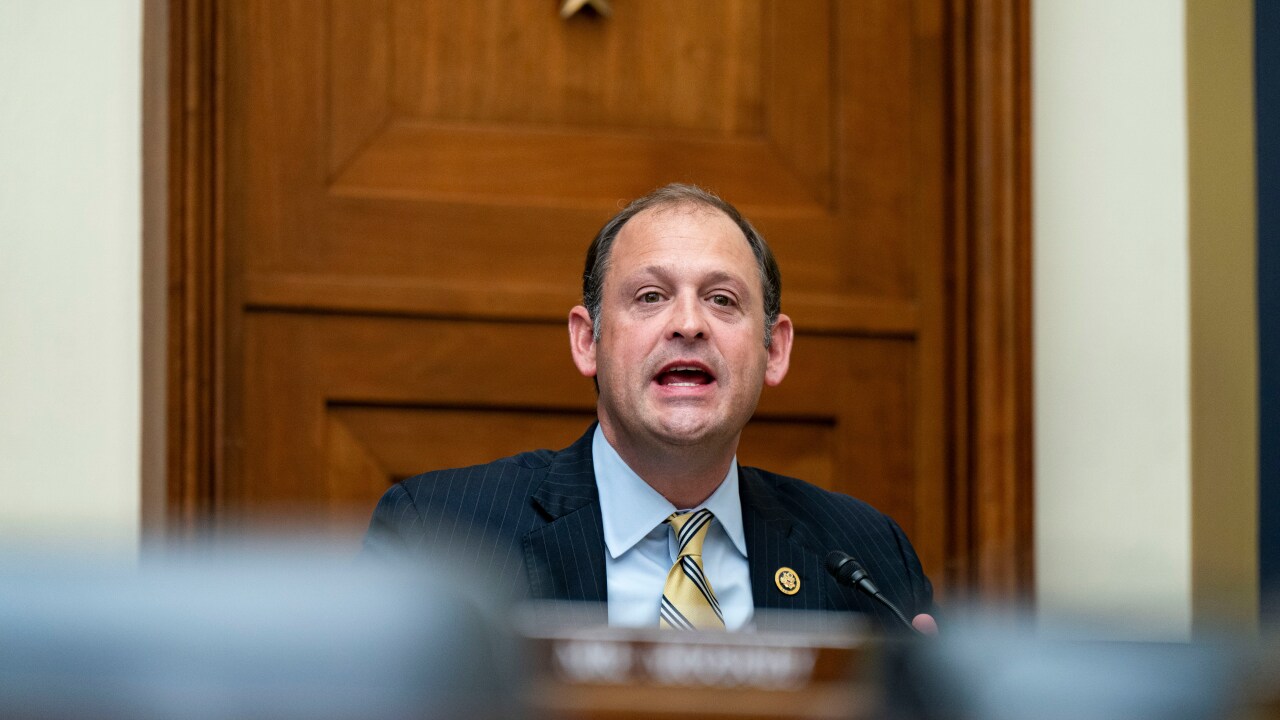Despite a budget dispute about continued funding for the Kentucky Wired public private partnership, it looks likely the project will get final approval before the state Legislative session ends.
The continuing disagreement over the issue shows multi-year political tensions related to the P3 broadband project remain active and ongoing, according to Fitch Ratings.
“This could be the beginning of a pattern of political tension and actions by the Kentucky Legislature on a couple of occasions to not appropriate funding for this project,” Michael D'Arcy, Fitch’s Kentucky state analyst, told The Bond Buyer. “This is the third budget cycle in a row that we’ve seen this kind of thing.”

In 2015, the Kentucky Economic Development Finance Authority
Fitch expects the budget dispute around the Kentucky Wired public private partnership project will have its final resolution before the legislative session finishes on April 15, but cautioned that tensions may exist into future budget cycles.
“It’s a little unusual, so we wanted to highlight it to make sure that investors and other interested parties were award of it,” D'Arcy said.
The bonds were issued on behalf of the Kentucky Wired Infrastructure Company Inc. for the Next Generation Kentucky Information Highway project.
Bank of America Merrill Lynch priced the $232 million of Series 2015A senior tax-exempt revenue bonds and $58 million of Series 2015B-1 and B-2 senior taxable revenue bonds in August 2015. Fitch rated the bonds BBB-plus with a stable outlook.
On Feb. 18, Fitch affirmed the BBB-plus rating on the Kentucky EDFA’s $232 million of Series 2015A senior tax-exempt revenue bonds and $58 million of Series 2015B-1 and B-2 senior taxable revenue bonds. The rating outlook is stable.
“The rating reflects the project's relatively low complexity and successful system completion achieved by the longstop date,” Fitch said. “The rating further incorporates the project's assumed low exposure to operating cost risk because of its limited scope, experienced operator, proven technology, and ability to fully pass-through capital expenses to the commonwealth of Kentucky.”
Fitch added that the rating also reflected the project's expected stable revenue profile due to modest performance requirements and fully indexed availability payments via the project agreement with the state.
"It’s important to remember that the P3 rating is dependent on the state’s consistent commitment to fulfilling its obligations in a timely manner," Ben Munguia, Fitch’s analyst on the Kentucky Wired project, told The Bond Buyer.
Moody’s Investors Service rates the bonds Baa2 and has a stable outlook on the credit as of Dec. 31.
Kentucky Wired is a "middle mile," open access fiber optic system
to bring internet access closer to communities throughout Kentucky.
Fitch noted in its most recent rating update that the project is substantially complete, with previous legal disputes involving the design-build team settled.
The project to bring high-speed internet to all 120 of the state's counties was The Bond Buyer’s
Since then, there have been two prior budget disagreements over funding for the P3 in the Kentucky legislature.
The first was in 2018 and the second in 2020. Both happened in years in which Kentucky's state elected leaders were required to formulate and adopt a biennial budget.
In 2020, Fitch said that the state itself
This year, Gov. Andy Beshear’s executive budget for the fiscal 2023-2024 biennium recommended about $40 million funding for Kentucky Wired in each fiscal year.
In January, Kentucky’s House passed its own budget bill for the upcoming biennium that included funding for Kentucky Wired at around the levels requested by the governor.
However, the Senate's version of the budget bill, passed in early March didn’t include an appropriation for the P3 availability payments.
Beshear is a Democrat, but Republicans have sizable majorities in each house of the legislature.
The House and Senate entered conference committee discussions to reconcile various differences in their approved budget bills, including the Kentucky Wired funding.
The latest budget proposal was crafted on Tuesday and sources told The Bond Buyer that it includes the funds that the governor requested.
The joint Free Conference Committee is expected to come up with the final budget bill which will be approved by both chambers of the legislature in late April or early May.

Fitch said this latest budget dispute is notable in that it comes at a time when the state is experiencing an improving fiscal situation.
The two prior disputes over Kentucky Wired occurred when the state had fewer financial resources.
Kentucky ended fiscal 2021 with a $1.1 billion general fund surplus due to unexpectedly strong revenue performance. Solid revenue growth in fiscal 2022 is putting the state on track to finish the current fiscal year with a $1.9 billion surplus.
D'Arcy said that in talking with people at the state level, he felt there was some resistance to the way this P3 was being funded.
“It’s not so much an opposition to P3 projects per se,” he said, “But I think there was dislike that this particular P3 requires biannual general fund appropriations for the length of the transaction. And I think there are some in the Legislature who didn’t like the fact that the project does depend to some degree on funding from general revenues.”
The funding agreement on the project runs through 2045.
He noted that while the state is flush with cash this spring as revenues are over-performing, some remember when times were harder.
“For many years in Kentucky [being in a good financial position] really wasn’t the case,” he said. “They had a slow decade revenue-wise up to 2020. And they had a lot of challenges in balancing their budgets, so that taking on this additional expense on top of their normal governmental expenditures and services for constituents was something that maybe irritated some members of the Legislature.”
D'Arcy noted that year’s disagreements were not as critical as they were in the past when the project was still in the building phase and could have been sunk by a failure to fund — all the substantial construction is now completed and the project is virtually done.
Still, it is nonetheless concerning to the marketplace because these tensions still exist and are ongoing.
“We have a certain concern that there's maybe a kind of a philosophical opposition here,” he said, “that makes future P3 projects in the commonwealth less attractive, or a much harder lift politically for leaders and for project managers and investors. And I think that’s worth highlighting to the market.”





